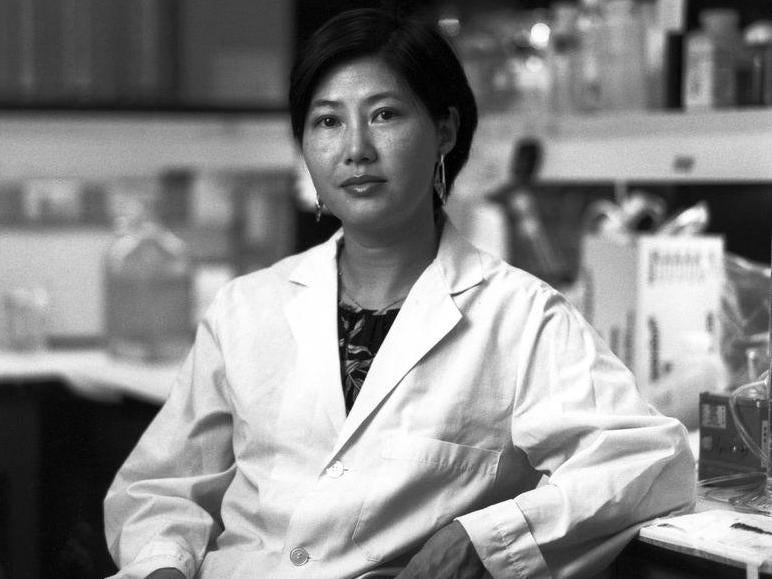Flossie Wong-Staal: Biologist and major figure in HIV research
Her molecular cloning of the virus in the Eighties gave rise to life-enhancing therapies for millions

Your support helps us to tell the story
From reproductive rights to climate change to Big Tech, The Independent is on the ground when the story is developing. Whether it's investigating the financials of Elon Musk's pro-Trump PAC or producing our latest documentary, 'The A Word', which shines a light on the American women fighting for reproductive rights, we know how important it is to parse out the facts from the messaging.
At such a critical moment in US history, we need reporters on the ground. Your donation allows us to keep sending journalists to speak to both sides of the story.
The Independent is trusted by Americans across the entire political spectrum. And unlike many other quality news outlets, we choose not to lock Americans out of our reporting and analysis with paywalls. We believe quality journalism should be available to everyone, paid for by those who can afford it.
Your support makes all the difference.Dr Flossie Wong-Staal, who has died aged 73, was a virologist, molecular biologist and a major figure in the discovery of the HIV viruses, which cause Aids. Her team’s work led to the development of therapies that have allowed people infected with HIV to lead normal lives by preventing the condition from developing into Aids.
Aids is triggered by two viruses, known as the human immunodeficiency viruses, HIV-1 and HIV-2. During the early 1980s doctors in New York began reporting unusual symptoms among members of the gay community. In particular, Kaposi’s sarcoma, a rare type of cancer that causes distinctive purple skin lesions.
Wong-Staal had arrived at the National Cancer Institute, part of the National Institutes of Health at Bethesda, Maryland, in 1973. As a postdoctoral student in the laboratory of Dr Robert Gallo, she embarked on research into retroviruses, a type of virus that must invade a host cell to complete its lifecycle. Their collaboration generated more than 100 scientific papers over the next 20 years. But it is for their work on leukaemia and on HIV that the pair are best known.
Uniquely positioned to carry out research on HIV and Aids, Wong-Staal, Gallo and their team had been working on the human T-cell leukaemia-lymphoma virus (HTLV), the first retrovirus identified in humans, and one of the causes of leukaemia. That work had led to the discovery of interleukins, a group of proteins that mediate communication between cells, leading to new therapies for the disease.
In 1984, Gallo and Wong-Staal published a series of papers in the journal Science demonstrating that Aids, like some forms of leukaemia, was also caused by a retrovirus. Early findings by their team included two genes specific to HIV and a further gene used by the virus to enter resting cells. Wong-Staal was successfully able to create a “molecular clone”, a copy which helped her team and other HIV researchers to understand the chemical structure of the virus and test for its presence. This research in turn has led to the development of antiretroviral therapies which, although they do not entirely cure the patient, inhibit viral replication, effectively stopping the further progression of the disease.
She would later go on to describe this time as “the highlight of my career, that period of discovery, intense discovery” and went on to say how “working with this virus is like putting your hand in a treasure chest. Every time you put your hand in, you pull out a gem”.
Wong-Staal was invited to the University of California, San Diego (UCSD) to launch its new Centre for Aids Research, established in 1990. Led by Wong-Staal, this centre of expertise has become one of the world’s leading authorities in its field, developing the concept of a drug “cocktail” as a key treatment for HIV.
Flossie Wong-Staal was born Wong Yee Ching in Guangzhou, southern China, in 1946. Her family fled to Hong Kong following the communist revolution, when she was six years old. She attended the Maryknoll Sisters School, where she excelled in science subjects and was encouraged by her parents to pursue higher education. Leaving Hong Kong aged 18, she studied bacteriology at the University of California, Los Angeles, going on to earn a PhD in molecular biology in 1972.
Following her distinguished career in leukaemia and HIV research, she retired from UCSD in 2002 to become chief scientific officer for Immusol, now known as iTherX Pharmaceuticals, working together with her husband Jeffrey McKelvy as chief executive. Although in her seventies, Wong-Staal had continued to pursue scientific research and at the time of her death had been working on therapies for hepatitis C.
“Flossie was one of the best scientists I ever worked with. Without her, loads of stuff in our lab would never have gotten done in the way they happened or with the same speed,” said her former colleague Robert Gallo, in tribute. “She was outstanding, and I will never forget her.”
Wong-Staal is survived by her second husband Jeffrey McKelvy and two daughters.
Flossie Wong-Staal, virologist and molecular biologist, born 27 August 1946, died 8 July 2020
Join our commenting forum
Join thought-provoking conversations, follow other Independent readers and see their replies
Comments